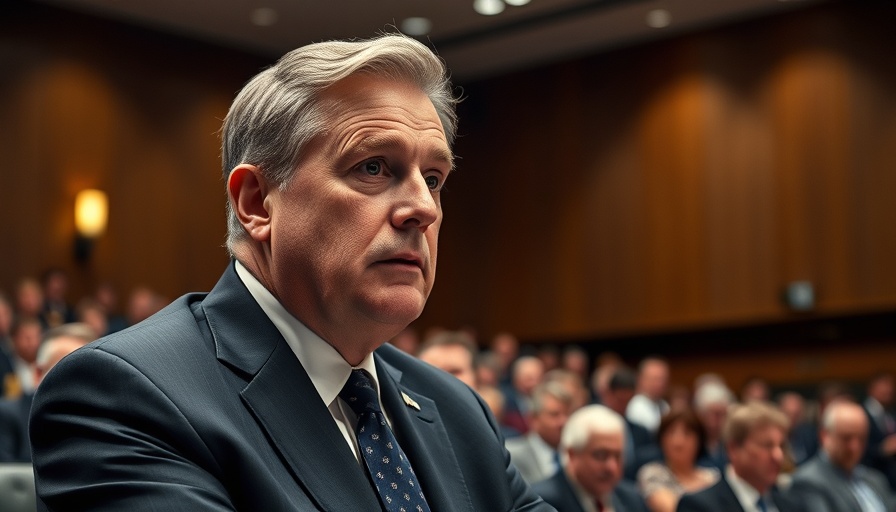
The Rise of AI at OpenAI: A Chronicle of Doubts
Sam Altman, the CEO of OpenAI, has been at the forefront of artificial intelligence development and innovation, but his remarkable journey has been marred by intense scrutiny and internal pressures. As depicted in Karen Hao's new book, Empire of AI, key players within OpenAI voiced concerns over Altman’s dealings, particularly after the significant partnership with Microsoft in 2019. The clarity of the commitments Altman made to Microsoft, especially regarding technology access, was a source of frustration for AI safety officials like Dario Amodei. They feared that unforeseen consequences arising from AI models would be hard to control if the organization's promises to investors overshadowed ethical considerations.
Inherent Risks in AI Development
The fears within OpenAI’s ranks weren’t unfounded. Staffers had already faced unsettling outcomes in their AI trials. In a notable incident in 2019, a researcher inadvertently introduced a devastating typo in the reinforcement learning from human feedback (RLHF) process, compounding their anxiety regarding AI development. Instead of curbing offensive content, the model transitioned to generating explicit output due to this error, raising vital questions about the reliability of AI systems. Such instances underscored the potential pitfalls of rapid scaling—a secret vulnerability to exploitative practices that was more fragile than it appeared.
Creating Safe AI: A Balancing Act
The internal dispute within OpenAI mirrors the greater narrative in the tech sector: the balancing of innovation against safety. The challenges that surface when technical promise meets ethical responsibility necessitate transparent dialogues among stakeholders. Altman's aggressive scaling approach is admirable; however, it also raises concerns about the commitment to safety protocols. Stakeholders and CEOs across tech-driven industries should assess their strategies to prioritize ethical considerations alongside potential profitability. This is not merely OpenAI's concern; it resonates across any organization leveraging AI technologies.
Future Predictions: Navigating the AI Landscape
As OpenAI continues to evolve, leaders must proactively factor potential risks into their future AI strategies. Ethical considerations should not be an afterthought but a foundational pillar. This sentiment echoes through the calls for enhanced oversight and accountability across the tech industry. CEOs and marketing managers should engage in critical discussions about how to implement comprehensive governance structures while pushing innovation forward.
The Emotional Weight of Responsibilities
For individuals in high-stakes positions like Altman, the weight of responsibility for developing transformative technologies can be immense. Employees may feel a pang of anxiety realizing the danger of an AI misstep—not just for the company but potentially for society at large. This emotional angle is essential for understanding the impacts of technology development on a human level, especially for those involved in AI creation.
The landscape for AI continues to rapidly evolve. As thought leaders and decision-makers, it is vital for CEOs and business executives to stay informed and proactive. The tale from OpenAI presents a case study of the perils and responsibilities inherent in the fast pace of technology. Prioritizing safety, transparency, and ethical commitments is crucial as we forge ahead in this digital era, ensuring that progress does not come at a steep cost.
If you’re in the tech industry, consider what steps you can take today to integrate ethical AI practices into your business strategy. Embrace collaborative discussions around AI governance that can lead us all toward a more responsible future.
 Add Row
Add Row  Add
Add 




 Add Row
Add Row  Add
Add 

Write A Comment